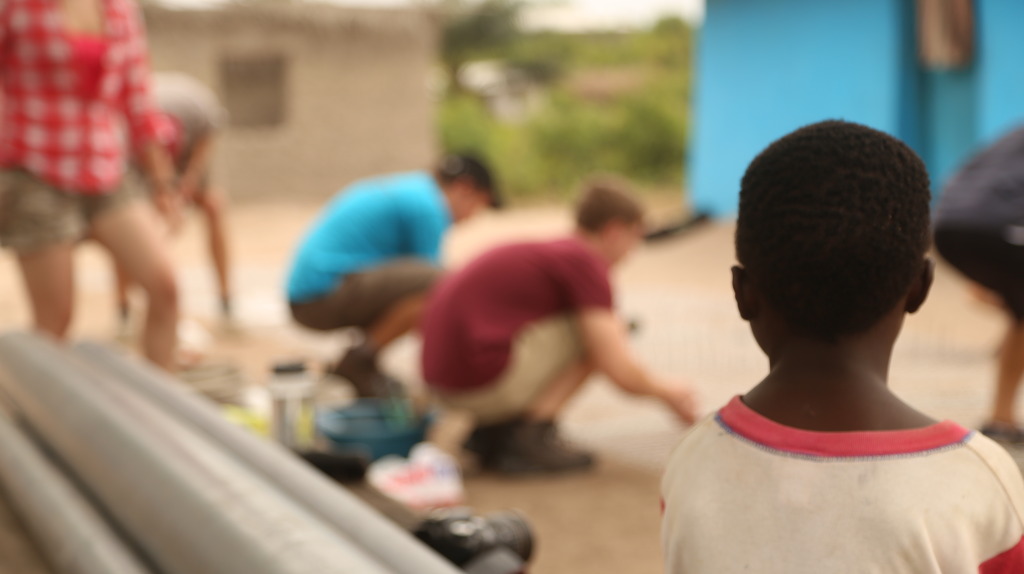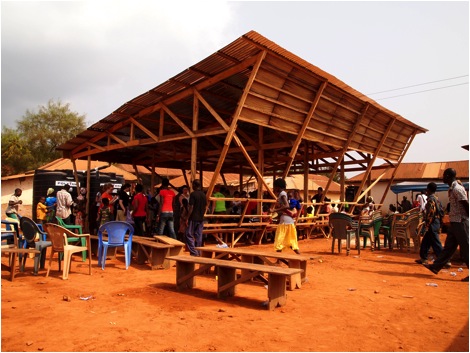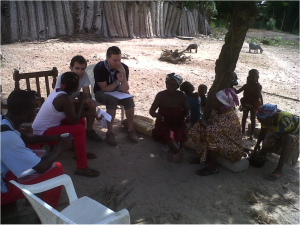By Leanna Ehrlich
Since 2011, Global Brigades has worked in rural communities in the Central Region of Ghana to improve access to safe and reliable drinking water. Clean water can prevent a wide variety of waterborne illnesses, including giardia, cholera, and typhoid. In Ghana, these diarrheal diseases are the 6th-highest cause of death for children under the age of five and the 7th-highest cause of death for the entire population.
Rural populations are disproportionately affected by lack of clean drinking water. In Ghana, only 74 percent of the rural population has access to uncontaminated water sources. While access to improved drinking water in rural Ghana is better than the average for rural Africa as a whole (48 percent), there is still a large unmet need for safe drinking water. Additionally, access to safe drinking water is lower in rural than urban regions. Global Brigades aims to decrease the burden of disease from waterborne illnesses by working with community members to increase clean water access.
In the communities where Global Brigades works, the only natural water sources are also used for purposes that can easily cause contamination: open defecation, washing clothes, and bathing. Global Brigades’ first water projects in Ghana were rainwater harvesters located at community schools. Communities began requesting household rainwater harvesters after improved student health and test scores. Global Brigades is now exploring alternate options to provide access to clean water given the indefinite suspension of student operations, because brigade volunteers traditionally constructed the harvesters.
Global Brigades plans to collaborate with the Ghana Water Company Limited to increase communities’ access to clean water. We will be provide funding and additional surveying to increase the rate at which communities receive standpipes. GWCL has not scheduled Ekumfi Ebuakwa, one of the communities where we work, to receive standpipes for at least five more years. However, if our donors can fundraise $20,000, we will be able to provide water to this community within three months of receiving funding.
All funding will go to necessary project materials, such as pipes and pumps. Community members will dig the standpipe’s trenches in place of brigaders. In addition to funding, Global Brigades’s engineers will also conduct technical surveys of the land where the GWCL will construct standpipes. Individuals in the community will sell water by the bucket for 10 pesewas, or approximately US $0.03, to ensure our construction is sustainable. These funds will cover system maintenance and a stipend for the seller.
Global Brigades Ghana plans to continue to improve the health and lives of community members even in the absence of brigade groups. We hope to keep our programs intact and sustainable until brigaders are able to volunteer again.
Sources
Country Health System Factsheet 2006: Ghana. The World Health Organization, 2006.http://www.afro.who.int/en/countries.html. PDF
“Giardia”. The Centers for Disease Control and Prevention. 2010.<http://www.cdc.gov/parasites/giardia/disease.html>
“Cholera.” Water Sanitation Health. The World Health Organization, 2012.<http://www.who.int/water_sanitation_health/en/>.
“Typohid.” Water Sanitation Health. The World Health Organization, 2012.<http://www.who.int/water_sanitation_health/en/>.
Ronca, Shannon. Health Implications of Poor Water Quality in the Central Region of Ghana. Cedar Crest College, 2012. <http://www2.cedarcrest.edu/academic/bio/hale/capstone/Ronca-GDS-Thesis-Final.pdf>




